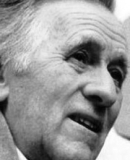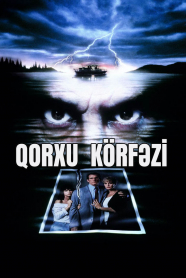
Freddie Francis
Freddie Francis
Cinematographer
Frederick William Francis (22 December 1917 – 17 March 2007) was an English cinematographer and film director. He achieved his greatest successes as a cinematographer, including winning two Academy Awards, for Sons and Lovers (1960) and Glory (1989). As a director, he was associated with the British production companies Amicus and Hammer in the 1960s and 1970s. Born in Islington in London, England, Francis was originally intending to have a career in engineering. At school, a piece he wrote about films of the future won him a scholarship to the North West London Polytechnic in Kentish Town. He left school at age 16, becoming an apprentice to a stills photographer by the name of Louis Prothero. Francis stayed with him for six months. In this time they photographed stills for a Stanley Lupino picture made at Associated Talking Pictures (later Ealing Studios). This led to his successively becoming a clapper boy, camera loader and focus puller. He began his career at British International Pictures B.I.P, then to British and Dominions. His first film as a clapper boy was The Prisoner of Corbal (1936). In 1939, Francis joined the Army, where he would spend the next seven years. Eventually he was assigned as a cameraman and director to the Army Kinematograph Service at Wembley Studios, where he worked on many training films. About this, Francis said, "Most of the time I was with various film units within the service, so I got quite a bit of experience in all sorts of jobs, including being a cameraman and editing and generally being a jack of all trades". Following his return to civilian life, Francis spent the next 10 years working as a camera operator. Some of the films he worked on during this period include The Elusive Pimpernel (1950), The Tales of Hoffmann (1951), Beat the Devil (1953), and Moby Dick (1956); he was a frequent collaborator with cinematographers Christopher Challis (nine films) and Oswald Morris (five films). His first feature with Morris was Golden Salamander (1950). He was on the second unit of Moby Dick. He then went on to become a main unit director of photography on A Hill in Korea (1956), which was shot in Portugal. He subsequently worked on such prestige pictures as Room at the Top (1959), Saturday Night and Sunday Morning (1960), Sons and Lovers (1960), and The Innocents (1961), which he regarded as one of the best films he shot.Francis received many industry awards, including, in 1997, an international achievement award from the American Society of Cinematographers, and, in 2004, BAFTA's special achievement award.With The Elephant Man (1980), directed by David Lynch, Francis found himself gaining new-found industry and critical respect as a cinematographer. During the 1980s he worked on films like The Executioner's Song (1982), Dune (1984) and Glory (1989), which earned him his second Academy Award. Francis provided the cinematography for the critical favourite The Man in the Moon as well as Martin Scorsese's remake of Cape Fear (both 1991). His final film as cinematographer was David Lynch's The Straight Story (1999), which was shot on location in Iowa in 23 days. One of his favourite camera operators was Gordon Hayman. He made several films with him including the Cape Fear remake and Glory, but Hayman was left off the credits for the later film by mistake. Freddie Francis married Gladys Dorrell in 1940, with whom he had a son; in 1963 he married Pamela Mann Francis, with whom he had a daughter and a second son. He died at age 89 as the result of the lingering effects of a stroke. His son Kevin Francis is a film producer.
For more information press the link below:
